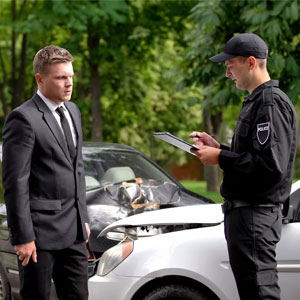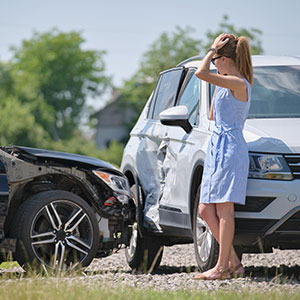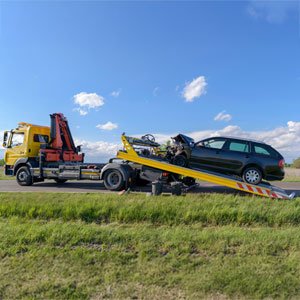Proving That Your Medical Bills Are Reasonable And Necessary At Trial In Florida
Car AccidentsIn the case of Robert Walerowicz v. Mandy Nicky Armand-Hosang, Case Number 4D17-1900 (Fla. 4th DCA)(May 23, 2018), the Fourth DCA held that a “combination of [the] Plaintiff’s testimony and [a] surgeon’s testimony, coupled with the introduction of the medical bills…provided sufficient testimony to establish the reasonableness and necessity of the medical bills presented to the jury.”
Jury Found That Plaintiff’s Injuries Were Permanent At Trial And Awarded Damages
The Plaintiff was injured in a car accident and sustained a shoulder injury, requiring surgery. The plaintiff (Ms. Armand-Hosang) testified at trial that she went to an urgent care the same day as the car accident because of pain and stiffness in her neck and a numbing sensation that radiated from her shoulder down to her fingers (these are actually quite common injuries in car accident cases, and as seen in this case, can be quite valuable as far as compensation goes).
She obtained follow-up care from a medical group for several months that included physical therapy, massage, and hot and cold packs. After months without significant improvement, an MRI was performed and the medical group recommended surgery.
Thereafter, the plaintiff obtained a second opinion (also recommending shoulder surgery) and she ultimately had the surgery performed (costing $58,000) by the doctor performing the second opinion. The plaintiff testified that more therapy was required after surgery and that she was still suffering from pain. Further, she testified that her injury affected her ability as a musician to fix and play instruments.
The jury found that the Defendant’s negligence (liability for the accident had been previously admitted but not causation of injuries as is common) was the “legal cause” of the Plaintiff’s permanent injury and she was awarded with damages for medical expenses as well as both past and future pain and suffering.
Despite the win from the jury, the defense (well-funded by the insurance company) appealed arguing that the trial judge should have granted a “directed verdict” for the defense because the Plaintiff had not “sufficiently” shown that her medical expenses were reasonable and necessary.
What Is Sufficient Proof That Your Medical Bills Are Reasonable And Necessary?
To explain this situation, we need to go back to the case of Albertson’s Inc. v. Brady, 475 So. 2d 986 (Fla. 2d DCA 1985) where the Second DCA said that “[i]t is well established that the plaintiff in a personal injury suit has the burden to prove the reasonableness and necessity of medical expenses.”
While that is true, the Albertson’s case (decided in Florida’s Second DCA, where Lakeland is located) also said that where a plaintiff “does not associate each bill with injuries resulting from the accident…the reasonableness and necessity of the medical bills [are] not adequately established.”
Some jurisdictions consider the medical bills themselves to be sufficient proof of their “reasonableness” (as in no doctor would ever charge a bill that was not “reasonable” for fear of being disciplined), however, the Second DCA opinion in Albertson’s has been problematic for many years). Other cases have said that it is the not the patient’s obligation to pay whatever a medical provider demands but instead, is only to pay a reasonable amount for the treatment received.
Good luck negotiating your medical bills on your own, but going back to the Albertson’s case, the problem there was that the plaintiff sought to introduce a “composite exhibit” (aka a stack of medical bills) to the jury and with no testimony from either the plaintiff or an expert witness about the details of the treatment.
This is why we as lawyers say that bad facts make bad law. In other words, if the plaintiff in the Albertson’s case had simply testified at length about the details of the treatment involved, we might never have been stuck with a decision that has caused many attorneys to believe that they need to call expert witnesses to support every medical bill at trial for many years.
Expert Testimony Is Not Required To Prove Reasonableness And Necessity, But Be Careful
Older case law from the 1970’s and 1980’s did not require a plaintiff to call an “expert” to prove that the medical bills are reasonable and necessary. Those cases held that a plaintiff in Florida may adequately establish reasonableness and necessity by a “detailed description of the treatment procedures” that “clearly related” the treatment to the accident.
Unfortunately, that doesn’t give us a bright line rule that is easy to follow.
So What Should A Plaintiff Do To Prove That Their Medical Bills Are In Fact Reasonable And Necessary?
The easiest thing that a plaintiff can do is describe in detail their injuries. In doing so, you should be explaining not only the medical problem but what the medical providers did for you to try to help you. To win at trial, you have to be detailed beyond just that you have a bunch of medical treatment and it cost a lot of money. If you are sincere about your case, you should have no problem talking about what hurt and what was done to try to fix it.
Secondly, in any car accident case in Florida, you are going to need to prove that your injuries were “permanent” because of Florida’s no-fault law and the “permanent injury threshold”. If you are not able to prove that your injuries are permanent, then a jury cannot award you with damages for pain and suffering.
To make this part simple, you will need an “expert” (usually a medical provider who provided treatment as opposed to an expert hired just for the lawsuit) to prove permanency. Therefore, you should have an opportunity to have the “expert” talk about plenty of detail about why the various treatments were performed even if you don’t talk about every bill (that would get monotonous in a hurry, especially when talking about physical therapy).
I was glad to read this opinion because it gives those of us in the territorial jurisdiction of the Second DCA a recent case to get judge’s here to see that you don’t need to bore the jury to death by talking in detail about every bill. Instead, the voice of reason is that the plaintiff, who has the burden of proof, has to link their medical problems with their treatment (again, it needs to be more than just you received treatment). As a plaintiff, you want to provide enough detail but not bore the jury to death with it because they will ultimately award you with money damages if they are convinced of your case.
Get Help With Your Case
Even a simple car accident case in Florida is not a simple thing to prove in a courtroom. Call or contact us today for a free case review to discuss the merits of your case with a Lakeland, FL car accident attorney.


